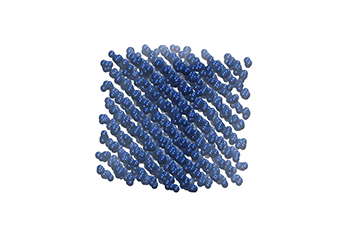University of Vienna’s Doctoral Network QLUSTER explores the parallels of ultrasoft interactions
The QLUSTER consortium comprises research groups from academia and industry spanning 7 countries of the EU and it is constituted as a collaborative network for promoting and advancing research in fundamentals and applications, for training young scientists with broad sets of skills and high adaptability to the changing and increasingly knowledge-based economy of the EU, and with a strong commitment to communicating science to society. Despite striking similarities in phenomena, language and even methods employed to study cluster formation and mesophase organization across widely different length scales — from the subatomic to the macromolecular scale — a coherent effort to bring distinct research communities in classical and quantum soft matter together has not been yet undertaken. The scientific objective of QLUSTER is to advance the fundamentals in classical and quantum soft matter beyond the state of the art, creating permanent ties between communities that have evolved separately so far, and fostering the transfer of knowledge essential for a broad range of applications. Ten new doctoral students are going to be employed in QLUSTER, which will officially commence on January 1, 2023.
The Faculty of Physics of the University of Vienna is participating through the group of Prof. Christos Likos, at the Computational and Soft Matter Physics Subunit. Further partners are the Consejo Superior de Investigaciones Cientificas in Spain (Coordinator), the University of Tübingen and the Jülich Research Center in Germany, the Consiglio Nazionale delle Ricerche in Italy, the University of Strasbourg in France, the University of Innsbruck in Austria, the University of Ljubljana in Slovenia, the Foundation of Research and Technology-Hellas in Greece as well as the company HighFinesse GmbH in Tübingen. Associated partners are the University of the Basque Country in San Sebastian, the University of Rome La Sapienza, the University of Crete in Heraklion and the Heinrich-Heine University of Düsseldorf.

